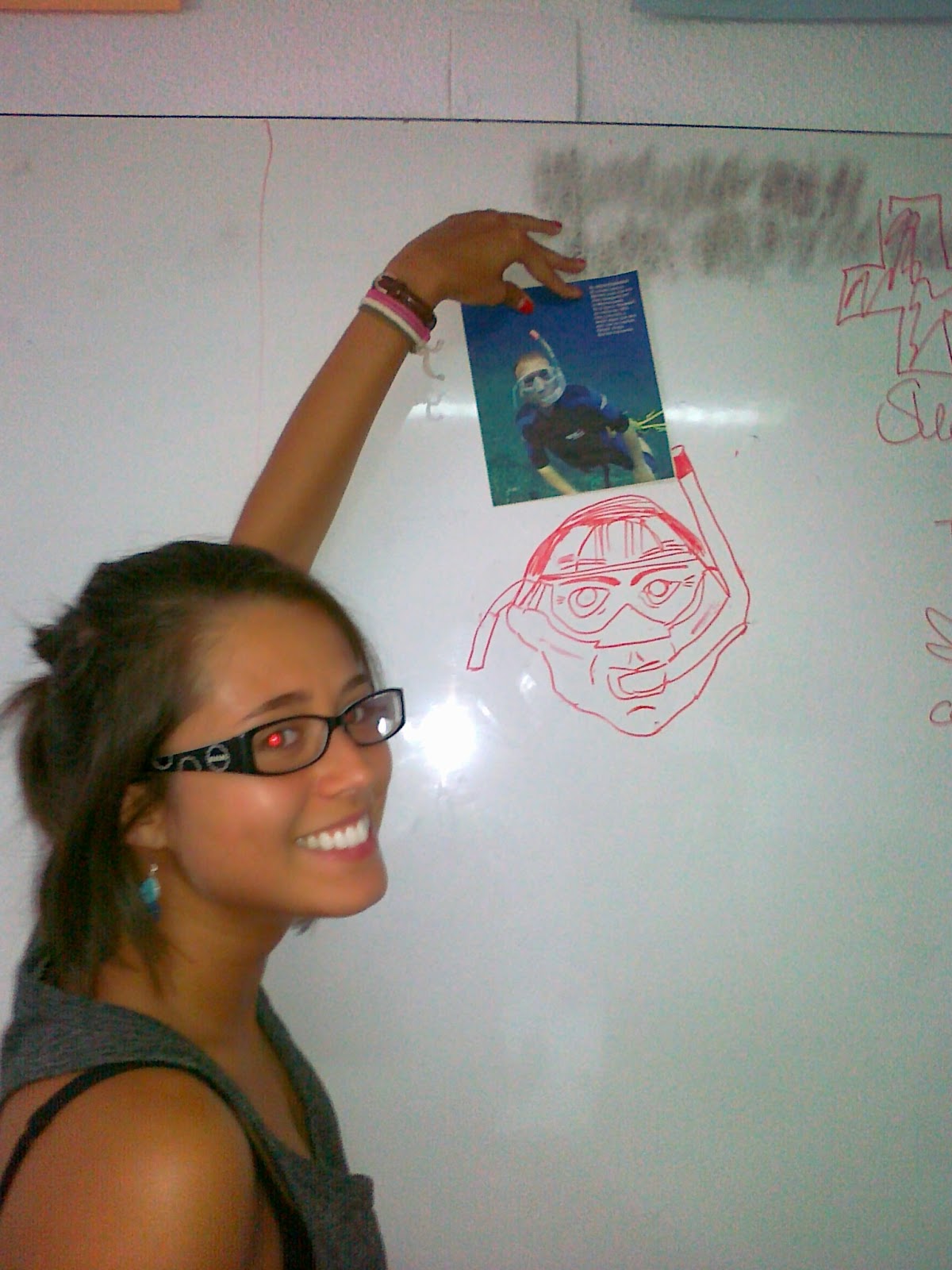Are you thinking of learning Spanish?
With so many Spanish language schools in Spain
● We have Standard, Intensive and Super-intensive
courses that let you learn a lot in a short time.
● You can
combine the study of Spanish with your needs: Business Spanish, or
recreational.
● You will be immersed in the Spanish language and
culture with our programm of activities.
● You will be in contact with native speakers and experience
the way of life of a Spanish family or new friends.
● We offer affordable prices and excellent quality of
teaching and student welfare.
● Furthermore, you can study for the number of weeks
you want, all the year round.
● We have a wide range of accommodation options to
suit all budgets and an exciting social programme, with many free activities.
● Accredited by Instituto Cervantes our educational
program and facilities.
● If you want to prepare the DELE official exams of
Spanish, we have a proven success. In 2014 100% of our students passed these
exams with no problems.
Any doubts? You can meet us before leaving home:
● You can make a virtual visit to our http://goo.gl/NLSxLk , get to know us through
our Facebook page https://www.facebook.com/SpanishinAlicante
, inquire in Pinterest http://www.pinterest.com/spanishalicante/
or Flickr https://www.flickr.com/photos/spanishschoolalicante
, follow us on Twitter https://twitter.com/in_Spanish
or find us on https://es.foursquare.com/in_spanish
● You can also
join our Facebook group and ask our students what they think about us: https://www.facebook.com/groups/5124742217/
Or read the comments they have written http://spanishschoolalicante.blogspot.com.es/p/students-feedback.html
Determined? “I want to learn Spanish! “
Well, good but ...
● Do not try to learn everything at once. Set yourself
clear and realistic goals and that progress at your own pace. We offer regular
one to one tutorial with teachers if you need it and Individual attention and a
personal study plan for every student.
● Discover new ways of
learning. You may find useful new methods and new technologies: http://goo.gl/lUx66U
● Take every opportunity to communicate and think in
Spanish.
● Check what you have learned and monitor your progress.
And above all:
● Do not be afraid to make mistakes. You can work
gradually. The important thing is that your message is understood.
“And how do I get it? What do I do?”
● It is very important to read and to listen a lot.
The more you listen, the better you will understand: songs, radio programmes,
TV shows, movies, news and documentaries ... Reading
● Remember that you do not have to understand all the
words to get the gist. So you can start from graduates books to newspapers,
magazines, blogs…
● Check your progress. Check what you've already
studied and you will find it easier. Progress!
● Take every opportunity you have to communicate in
writing - by email, postcards, letters, chats, messages etc.
● Re-read what you've written: when you write, always
take more time to review and correct mistakes.
● Try to talk as much as you can: talk to your
classmates, your teachers, with your host family, with your new friends or even
to yourself!
● What if my friends or roommates prefer to speak in
another language? “Explain that you would prefer to speak in Spanish. You can
establish the policy "only Spanish" as if it were a game.
● Memorize the phrases you are going to say more often
- to meet someone, do the shopping, etc.
● Most people never achieve a perfect accent in a
foreign language. It does not matter, what matters is that you make yourself
understood.
“And the vocabulary? How do I learn all the new words?”
● You will find it easier if you group the new words
by meanings, using word association or mappping words.
● You can also “see” the word in your mind, make combinations
between sounds or pictures to remember the new words or study the new
vocabulary in a sentence or text.
“Any other questions?” “No” Then ... prepare your luggage. We are looking
forward to meeting you.





















